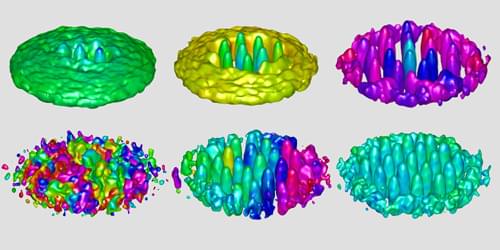A new study is revealing that a reversal in the Earth’s magnetic poles 42,000 to 41,000 years ago may have led to environmental crises that resulted in mass extinctions. The period is called the Laschamps excursion and the research used precise carbon dating obtained from ancient tree fossils to study its effects.
The team details how they created a precise radiocarbon record around the time of the “Laschamps geomagnetic reversal about 41,000 years ago from the rings of New Zealand swamp kauri trees.”
“This record reveals a substantial increase in the carbon-14 content of the atmosphere culminating during the period of weakening magnetic field strength preceding the polarity switch.” The team concluded that the “geomagnetic field minimum caused substantial changes in atmospheric ozone concentration that drove synchronous global climate and environmental” with their model investigating the consequences of this event.








